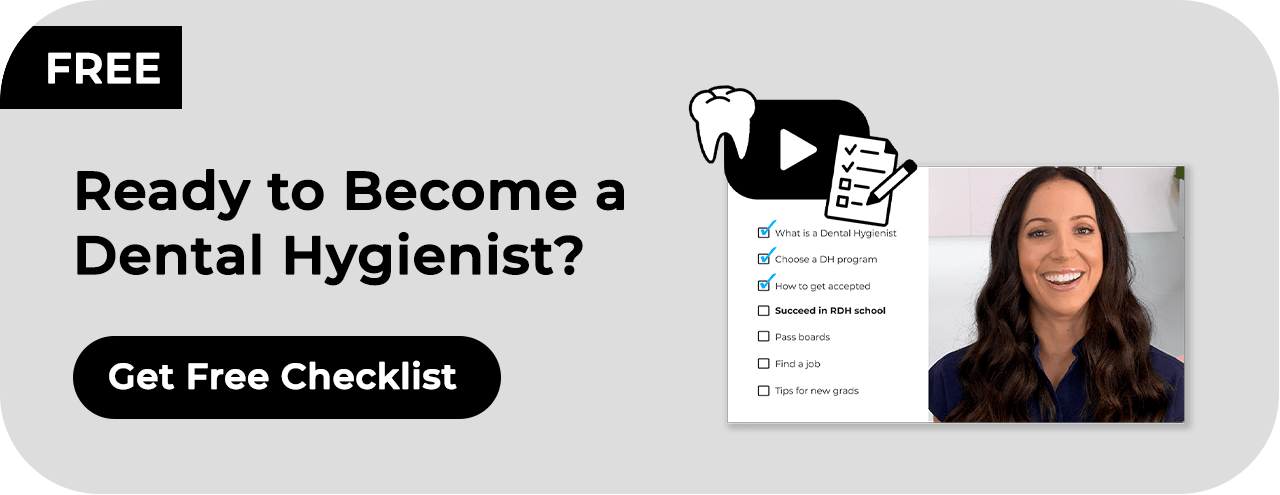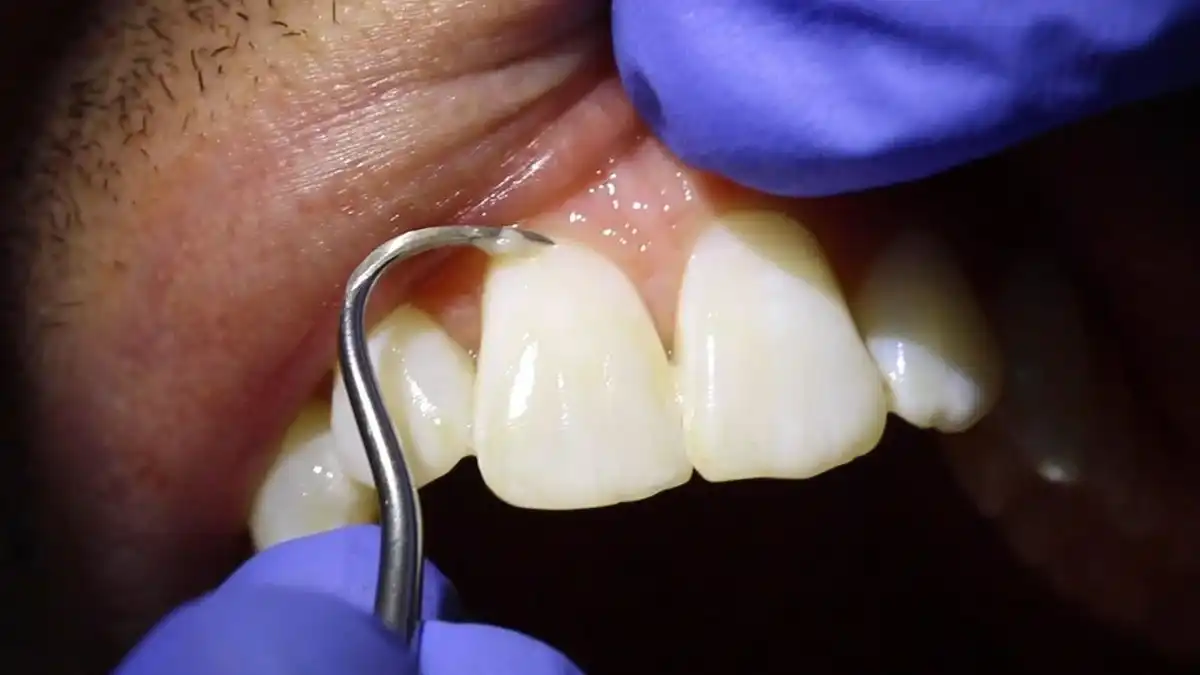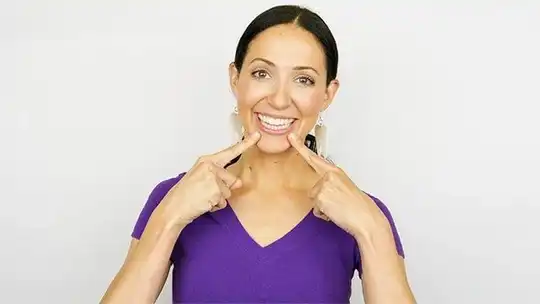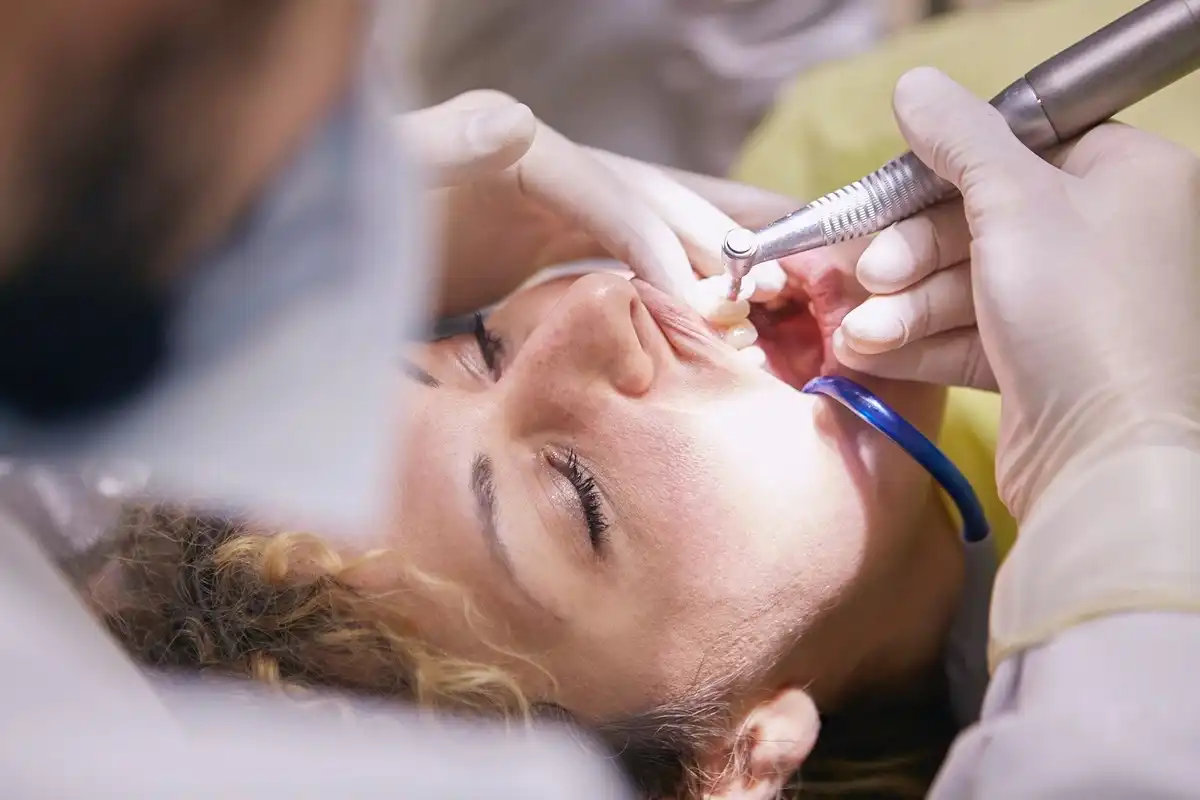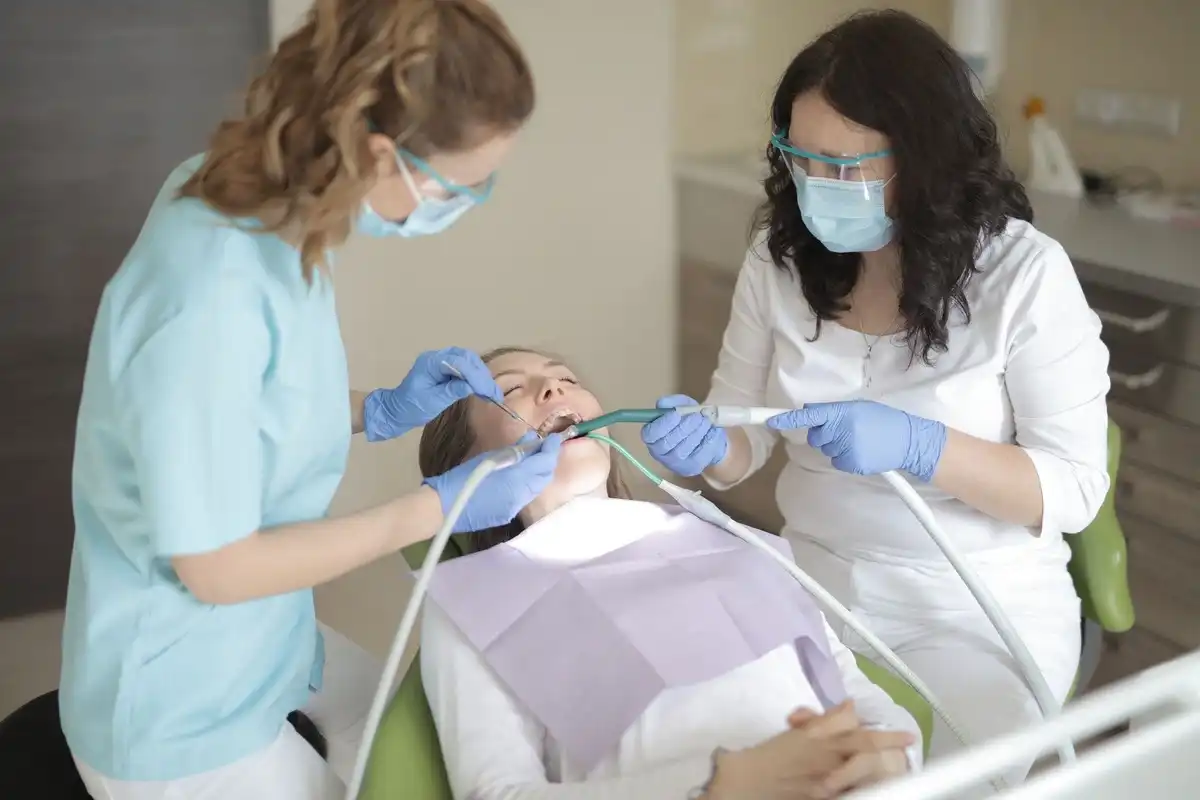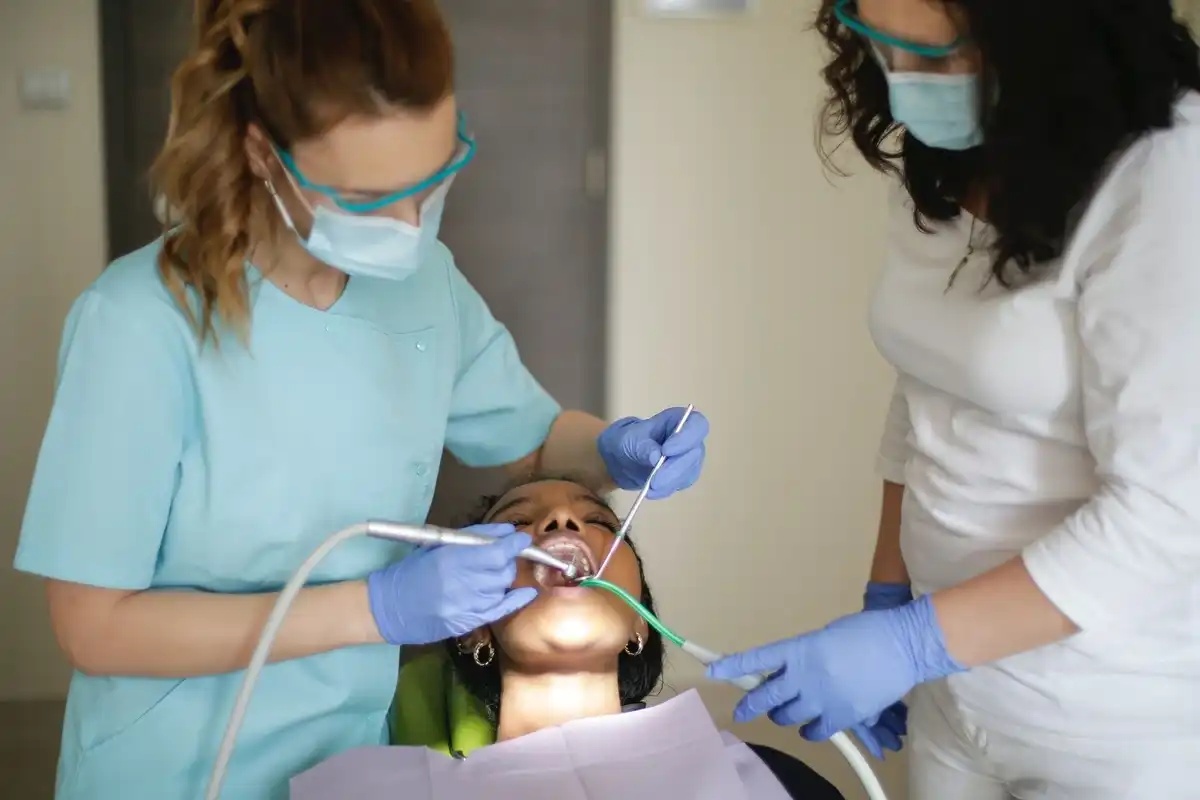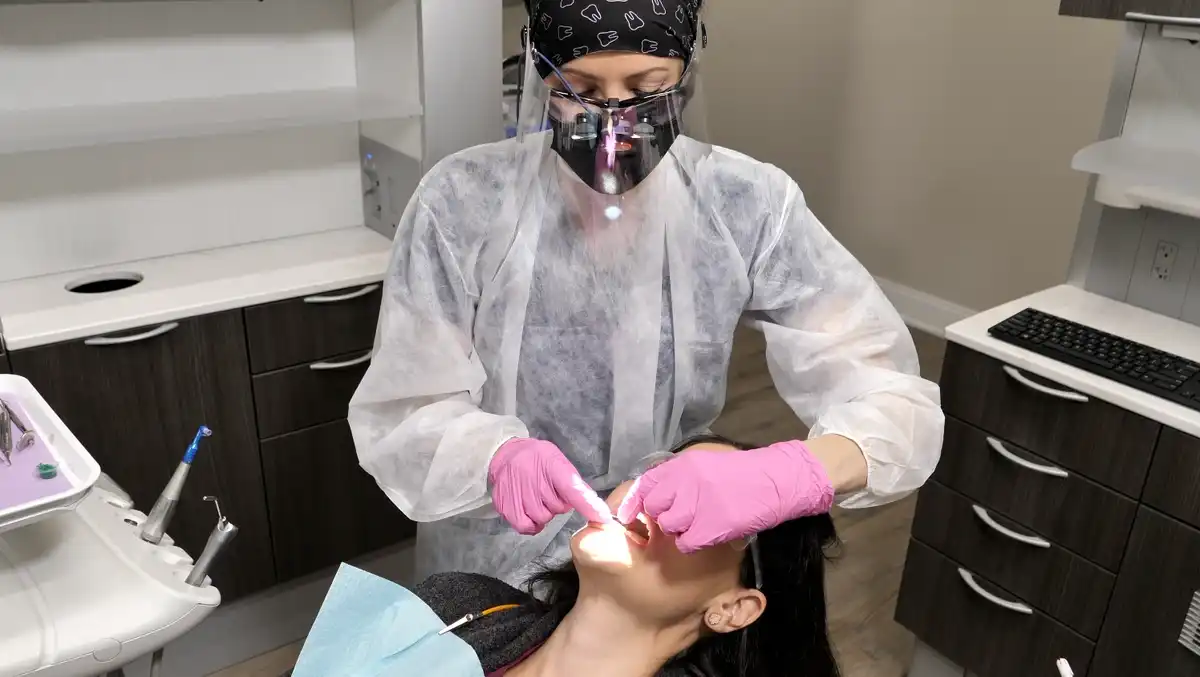How To Become A Dental Hygienist: Career, Salary, and Education

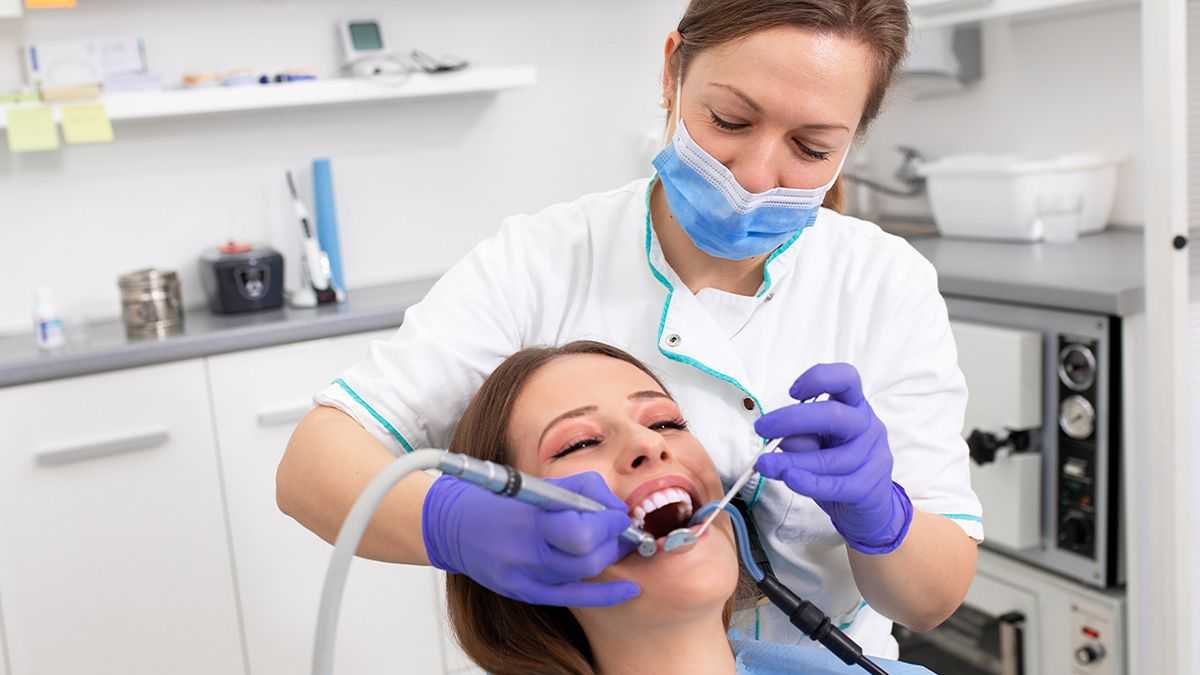
What Is A Dental Hygienist
Most people recognize dental hygienists as the dental team member who cleans away tartar and plaque then polishes their teeth every six months. Dental hygienists work directly with patients and are not the same as dental assistants.
How To Become A Dental Hygienist
Does becoming a dental hygienist sound like the best career path? If so, you’ll want to apply to dental hygiene school, which can be quite competitive. Most dental hygienist programs require prerequisite courses in chemistry, anatomy and physiology, microbiology, and core courses such as English, history, college algebra, biology, etc. Some also require an entrance exam in order to apply.
Related: Dental Hygiene Career Course
In your final semester of dental hygiene schooling, you’ll complete a written national board exam and a state clinical board exam. The first is a multi-hour written test that is accepted by multiple states. The latter is a clinical or “hands on” process where patient care is rendered and evaluated by dental hygiene examination committees. Additional tests are sometimes needed for things such as nitrous oxide monitoring or local anesthetic delivery, depending on your state.
To become a dental hygienist, upon satisfactory completion of your written and clinical boards, your State Board of Dental Examiners will process and deliver your dental hygienist license. At this time, you can begin practicing as a Registered Dental Hygienist. Licenses must be renewed around every 1-3 years (renewal frequencies vary by state) with appropriate continuing education requirements met as dictated by your state.
Related: How Long Does It Take To Become a Dental Hygienist?
Dental Assistants Vs. Dental Hygienists
Assistants complete training that ranges from on-the-job to technical school or a community college certification program. Dental hygienist schooling is similar to that of a Registered Nurse, in that they must complete either an associate’s or bachelor’s degree in dental hygiene and then pass a series of board exams. Learn more about Dental Assistant Vs. Dental Hygienist here!
Dental Hygiene Career Rankings
Median Salary: $81,400
Stress Level: AVERAGE
Work-Life: HIGH
Career Advancement: BELOW AVERAGE
Dental Hygienist Salary
Depending on cost of living in your area and the amount of experience that you have, the average dental hygienist salary is just over $81,000 per year, with higher earners topping $90,000 per year. In fact, areas of the United States with a higher cost of living may have dental hygienist salaries that are over $110,000 per year. An entry-level dental hygienist salary in a more affordable area could be as low as $62,000 per year. Most hygienists are paid an hourly rate with some offices offering bonus incentives on a case-by-case basis. Although many dental hygienists can hold either a 2 or 4-year degree, their level of education does not affect their licensure, nor should it impact their salary.
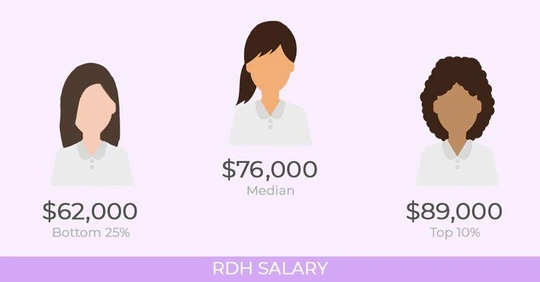
How Much Does A Dental Hygienist Make Per Hour?
The average dental hygienist salary is right around $36/hour. Again, this number can be higher or lower and depends on what part of the country you’re in as well as the cost of living in that area. A dental office may choose to pay hygienists a flat rate per day or by the number of patients that they see. In the majority of situations, the salary is a flat hourly amount. If you consider things like a paid uniform allowances or continuing education options, the added benefits can make your salary more competitive.
Temporary Dental Hygienist Make More
According to online job placement websites, the national average temping RDH salary is just over $90,000 annually, or about $45 an hour. Keep in mind, pay in certain geographical areas is going to be higher than in others. In fact, some experienced dental hygienist are earning as high as $124,000 a year!
Best-Paying Cities For Dental Hygienists
Are you interested in relocating or becoming licensed in a different state? Knowing where the most competitive dental hygienist salary exists can help you get more bang for your buck when it comes to a job search. Although pay is significantly dependent on the cost of living where the practice is located, it can still be worth your while to explore which areas boast the highest salary.
According to the United States Bureau of Labor Statistics (BLS), the American cities with the highest salary for dental hygienists include
- Fairbanks, Alaska (at $113,190 per year)
- San Jose, California ($112,210 per year)
- Anchorage, Alaska ($110,800 per year)
- San Francisco, California ($109,750 per year)
- Santa Rosa, California ($108,010 per year)
The Best-Paying States For Dental Hygienists
Maybe you’re not interested in moving to one of those five cities, but you still want to know which states have the highest salary when it comes to dental hygiene jobs. As you might guess, the top two are Alaska and California. But to round out the top five, you’ll also want to consider Washington, Arizona, and New Jersey. A dental hygienist career is a well-paying opportunity, regardless as to which state in which you choose to practice.
- Alaska ($114,320 per year)
- California ($114,320 per year)
- Washington ($114,320 per year)
- Arizona ($114,320 per year)
- New Jersey ($114,320 per year)
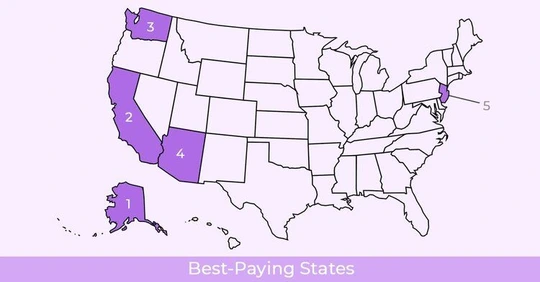
What Is The Salary For A Dental Hygienist In California?
The State of California comes in just behind Alaska in regard to the highest dental hygienist salary. Although certain areas are pushing upwards of $110,000 per year, the state average is right at around $100,000 per year. Much of it depends on which part of California you’re practicing in and how expensive it is to live in that area. Being able to commute from out of the area can lower your cost of living and allow you to “make more” so to speak. Simply choosing the highest dental hygienist pay may not be significantly different from other areas of the country that pay lower when housing costs and other cost of living factors come into play.
Average Dental Hygienist Pay Vs. Dental Industry Jobs
If you’re someone who wants to work in the dental industry but doesn’t know much about the various career paths to choose from, other options include becoming a dentist, dental assistant, or a dental lab tech. Dentists make over $150,000 per year. Dental assistants earn an average salary of around $39,000 per year. Or if you prefer not to work directly with patients you can pursue becoming a lab tech (individuals who create prosthetics such as dental crowns or dentures) for average pay of about $53,000 per year.
Jobs Related To Dental Hygienists
Depending on how much time you want to spend in school and what interests you, pursuing a dental hygienist career or other job in the dental industry can be the perfect fit. Dental hygienist schooling is usually completed in just 3-4 years (similar to a registered nurse) but if you choose to become a dentist, you’ll be in school for about 8 years. Dentists who choose to specialize in a particular area of dentistry remain in school for an additional 2-3 years on top of completing dental school. On the other hand, lab techs often attend a technical school or are trained under the guidance of a mentor/apprenticeship to learn their trade. Dental assistants earn the lowest salary of dental related jobs, but with their shorter training time it’s also possible to enter a career with little to no student debt.
Dental Hygiene Job Satisfaction
One of the reasons why a dental hygienist career ranks as a top job is because of the career satisfaction. Dental hygienists are paid well, have a relatively low-stress level compared to other types of healthcare jobs, earn a competitive salary, and enjoy the benefit of knowing they’re helping others enjoy a better quality of life. When it comes to the average dental hygienist’s working hours, the traditional work schedule is one that makes careers in the dental industry highly attractive compared to other types of medical jobs.
As long as dental hygienists practice good ergonomics and self-care (to prevent repetitive or musculoskeletal injuries) such as exercise, stretching, and massage, it’s possible to work well into your 60s in the same job role.
On a day-to-day basis, dental hygienist careers typically consist of seeing one patient at a time, with anywhere from 45-90 minutes per patient. Dental hygienists who work in pediatric dental offices may see anywhere from 2-4 patients per hour, as it’s common to have a hygiene assistant taking X-rays, seating patients, educating patients on oral health, and setting up the hygiene area for you.
Dental Hygiene Education Requirements
How long does it take to become a dental hygienist? Similar to becoming a Registered Nurse, Dental Hygienists can choose to complete either a 2 or 4-year program, receiving an associate’s or bachelor’s degree in Dental Hygiene from a accredited dental hygiene program. Regardless as to which type of program you complete, the licensure and pay is typically the same. Many aspiring to become dental hygienists apply to more than one school due to the competitive admission process. Prior to applying, basic prerequisite science courses must be completed. The typical dental hygienist attends college between a total of 3-4 years, depending on which dental hygiene program they attend. The actual hygiene coursework and training only takes 2 years. The additional 1-2 years are for degree or prerequisite requirements.
Accredited Dental Hygiene Programs & Dental Schools
What You’ll Study In A Dental Hygienist Program
There’s more to becoming a dental hygienist than just learning how to clean and polish teeth. Although you’ll complete extensive clinical hands-on training in tartar removal, sealant placement, and soft tissue therapy, dental hygienists’ schooling also consists on extensive lectures over disease management, oral pathology, the oral-systemic health connect (including how dental conditions relate to underlying medical issues), pharmacology, head and neck anatomy, radiography, dental materials, jurisprudence, local anesthesia delivery, oral health patient education, and case management.
Most dental hygiene students typically begin seeing patients in the second semester of school. Prior to that, they practice on one another. During dental hygiene clinicals, a team of hygienists and dentist(s) monitor patient care, evaluate the student’s accuracy, and provide guidance for case management. Students will complete a wide range of requirements and patient categories, allowing them to experience and perfect their skills when it comes to treating a diverse population of varying oral health needs. In addition to cleaning teeth, aspiring hygienists will also learn how to take X-rays, record impressions, measure soft tissue attachment levels, use dental equipment, and complete oral cancer exams.
Upon the completion of two years of clinical and lecture courses, the student will qualify to sit for the national and state board exams.
Types Of Dental Hygienist Degrees
Dental Hygienist Associate’s Degree
After core science prerequisite courses are completed, the student attends a 2-year dental hygiene program and graduates with an Associate of Applied Science degree.
Learn more about associate degree: Dental Hygienist Associate vs. Bachelor Degrees
Dental Hygienist Bachelor’s Degree
Similar to an associate’s degree, but with more foundational coursework requirements in order to fulfill a four-year university degree. After completing the majority of core courses, students proceed to their lecture/clinical hygiene studies.
Both 2 and 4-year degree programs include similar hygiene coursework (lecture and clinical) and sit for the same board exams. Associate’s degrees are awarded at junior or community college settings, while bachelor’s degrees are completed at universities. Admissions to both degree programs are highly competitive.
Dental Hygienist Master’s Degree
Hygienists who want to pursue careers in academia, research, or public health may choose to return to college to complete a master’s degree in Dental Hygiene. In order to teach at the college level, hygiene instructors must have – or be working toward – a higher degree. Master’s degrees can frequently be completed online. Additionally, states such as Minnesota are now bridging into “dental therapist” programs, which is a master’s degree mid-level practitioner below a licensed dentist (dental therapists can perform a wider range of services than a dental hygienist, but fewer than a dentist.)
Online Courses
National Boards
Regardless of which state your dental hygiene program is located, to become a dental hygienist, all dental hygiene students must sit for the written National Board Dental Hygiene Examination (or “NBDHE”). This multi-hour written, 350-question exam covers all core competencies in patient care, ranging from case management and disease recognition to dental materials and soft tissue therapy. Due to its length, the NBDHE is usually broken up into a morning and afternoon session, with a lunch break in between. The national dental examinations scores range from 49-99 and a minimum score of 75 is necessary to pass.
Learn More: Dental Hygiene License: Boards, Exam, and Renewal
State Dental Hygienist Requirements
The final phase of registered dental hygienist schooling and exams is the state board. State boards which typically consist of a dental hygienist clinical examination cases, where patients are cared for and then the student is scored by other clinicians. Some states require dental hygienists to take separate written exams (i.e. jurisprudence or sedation monitoring) that must be completed. Due to the diverse nature of state requirements, your dental hygiene program will usually direct you toward the standards set in place by the state and guide you throughout the process. However, you may need to do your own research if you plan on practicing in multiple states or moving out of state after graduation.
Find Out More About YOUR State here.
How To Get Your Dental Hygiene License
During your final semester of dental hygiene school, your program coordinator will provide instructions on which exams and clinical boards to register for (just another reason why it’s important to attend an accredited program). The type of testing that you’re required to complete will depend on the state where your school is located and the state in which you plan to practice. In most cases, you will sit for your written national board exam at your hygiene school. When it’s time for the clinical exam, you and a patient will arrange to attend one of the authorized testing sites on a specific date and time. Your testing scores are then returned to you and/or your state dental board. Once processed by the state and you’ve completed all application requirements (such as CPR and proof of degree completion), an annual license is mailed to your home address.
RDH License Renewal
Now that you’re a licensed hygienist, you’ll need to maintain and renew your licensure as dictated by your state. Failing to comply with renewal requirements can result in your license being suspended.
Most renewal protocols require a refreshed CPR and BLS course for healthcare professionals, a minimum number of continuing education (CE) course hours, and jurisprudence updates. Typically, the required professional development courses can be completed in just a couple of weekends per year. Some states will allow you to carry over hours for a year or two, making it easier to lump your training into fewer sessions. Courses must be accredited and can usually be obtained through independent CE providers, online, or at regional dental conventions. Check with your state dental board for specific requirements.
Dental Hygiene Continuing Education
Continuing education courses (CE/CEUs) allow practicing and seasoned dental hygienists to remain abreast of the current research and trends in dentistry for years after graduation. Depending on the state you’re licensed in, you may need an average of 12-24 hours every 1-2 years. Most dental hygienists and dental providers choose to complete additional CE courses, simply to learn about new technology and incorporate practical strategies into their everyday services. The American Dental Association offers tons ways for you to earn your continuing education. Always document the courses that you complete (most will include a special code or certificate) and make sure they’re provided by a certified ADA CERP or similar provider.
Becoming A Dental Hygienist
A career as a licensed dental hygienist can be extremely fulfilling. Not only do you get to work with amazing people each day, you can also earn an awesome salary doing it. Depending on where you live (city, state, and cost of living) an average dental hygienist salary is over $76,000 (with top earners making over $100k annually.) But to begin a dental hygienist career, you’ll need to complete a 2 or 4-year hygiene program, which can be extremely competitive to get into, and then pass national and state hygiene boards along with maintaining annual continuing education hours. Industry experts repeatedly rank dental hygiene as a top job in healthcare because of its satisfaction rate, work/life balance, and salary. Just be warned – it also ranks high in exposure to infectious diseases!

Make your inbox smile!
Subscribe
